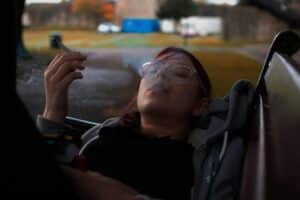If you drink alcohol in excessive amounts, there’s a good chance that you will participate in binge drinking. In addition, like millions of other Americans, you may be affected by alcoholism. Are binge drinking and alcoholism the same thing? No. However, the two problems are statistically related. The presence of alcoholism is an immediate reason for entering an alcohol detox and rehab program. And if you binge on alcohol, your chances of needing this kind of program in the future can increase dramatically.
Binge Drinking Facts
What qualifies as binge drinking? At its core, this form of problematic alcohol use is defined by the following:
Drinking in large enough amounts to trigger rapid drunkenness
Reaching or surpassing official drunkenness in no more than 120 minutes
More than 15% of all American adults sometimes drink in patterns that meet this standard. And one out of four binge drinkers meet it on a weekly basis—binging accounts for at least some alcohol intake in nine out of every ten people who drink excessively.
How Many Drinks Are Considered Binge Drinking–Using Alcohol Intake as an Indicator
Public health specialists sometimes use alcohol intake as a measure of binging behavior. How many drinks are considered binge drinking? For men, the typical number of drinks is five within a two-hour timeframe. Women typically consume four drinks within this amount of time.
However, using alcohol intake as an indicator can be tricky. That’s true because not everyone reaches legal drunkenness when drinking in the indicated amounts. Still, the number of drinks you consume in a short period of time is a reasonable rough estimate of your risk.
Binge Drinking vs. Alcoholism–What Are the Key Differences?
People affected by alcoholism are dependent on alcohol. In addition, they engage in compulsive behavior focused on obtaining more alcohol and consuming it. As a rule, the amount of alcohol consumed by a person with alcoholism is excessive.
Given these facts, it would seem that alcohol binging and alcoholism are functionally the same things. However, this is not the case. The average person who binges on alcohol is not dependent on drinking. They also lack the compulsive, alcohol-seeking behavior that comes with addiction.
But there is a connection between alcoholism and alcohol binging. Specifically, people who go on alcohol binges have higher chances of developing alcohol use disorder (AUD). The definition of AUD includes alcoholism. In addition, it consists of a non-addicted pattern of drinking that hinders your day-to-day function.
Binging and the Dangers of Blacking Out From Alcohol Use
Alcohol binging also comes with other kinds of risks. One typical example of this risk is the potential to overdose on alcohol. Another is the onset of an alcohol-induced blackout. A blackout occurs when your brain stops creating new memories despite the fact that you’re conscious.
What are the dangers of blacking out from alcohol use? First and foremost, people susceptible to blackouts are typically legally drunk. This level of intoxication comes with elevated risks for such things as:
- Accidents
- Injury to yourself or others
- Involvement in extremely risky behavior
During a blackout, you will have little or no awareness of actions you take that expose you to these risks.
Find Out More About Binge Drinking Vs. Alcoholism at Northpoint Colorado
Have more questions about binge drinking vs. alcoholism? Talk to the experts at Northpoint Colorado. We have the answers you need to understand the relationship between alcohol binging to alcoholism fully.
Northpoint is also your source for state-of-the-art alcohol treatment services. To learn more about our detox and rehab programs, call us today at 888.231.1281. You can also reach us through our convenient online message form.




